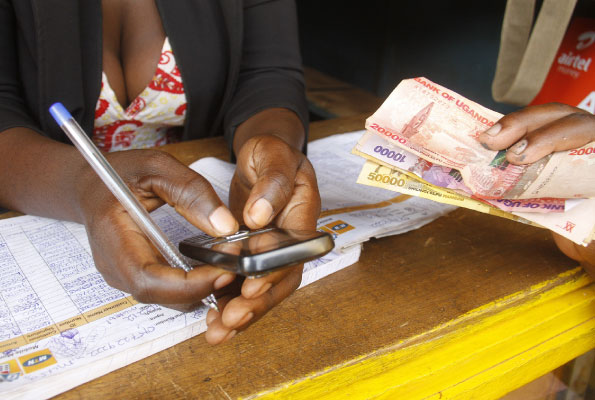By George Aine
Uganda is the second largest mobile money market in Africa, latest statistics show, a further indication that the introduction of the new tax will severely hurt the sector’s promotion of financial inclusion.
According to 2017 Global Findex data, Uganda is second behind Kenya, with 51% Ugandan adults said to own a mobile money account last year, compared to 35% in 2014. In Kenya, the data indicates that 73% of adults own a mobile money account compared to 58% in 2014.
Zimbabwe is in third position, with 49% adults owning a mobile money account in 2017, Gabon is fourth with 44%, Namibia 43%, Ghana and Tanzania at 39%, Ivory Coast at 34%, Burkina Faso 33%, Senegal at 32% and Rwanda 31%.
The Global Findex is the world’s most comprehensive data set on financial inclusion. Launched with support from the Bill & Melinda Gates Foundation and published every three years, it consists of nationally representative surveys of roughly 150,000 adults in more than 140 economies.
Dr Charles Augustine Abuka, the BoU director for financial stability, said mobile money has the potential to foster financial inclusion in Uganda.
Read more: After social media, mobile money taxes are here
The BoU official attributes this to the convenience of mobile money services compared to commercial banks, urging the financial institutions to step up their game and ensure they bring their services closer to the people.
“In the year to December 2016, the total value of mobile money transactions stood at Sh43.8 trillion. This was greater than the Shs32.5 trillion witnessed in the year to December 2015,” Dr Abuka said on Monday.
Collecting and depositing cash at kiosks with mobile money agents has fast become the natural solution in many rural areas where distances are often long, roads and infrastructure poor, and few have access to traditional bank accounts.
An official at PricewaterhouseCoopers in Uganda, Mr Martin Bamukunde, said mobile money surpassing commercial banks is not exclusive to Uganda or East Africa.
“Particularly, the growth in mobile money in Uganda can be compared to the success of M-Pesa in Kenya. Mobile money provides basic financial services, including deposit, withdrawal, remittance delivery, and bill payment and has especially been successful in reaching low-income earners and the rural poor,” Mr Bamukunde adds.
However, experts warn that the introduction of the new tax on mobile money will curtail its growth and severely affect financial inclusion.
On July 1, telecoms implemented the 1 percent mobile money tax on every transaction, kicking up a storm among a number of subscribers.
However, President Museveni quickly intervened, saying there had been a miscommunication.
He said Cabinet had only agreed on 0.5 percent and not 1 percent.
However, a number of people have questioned this line given that the President had signed the same adjustments, which had been severally referred to during the Budget reading, which he also attended.
A number of civil society organizations, media and individuals had for months questioned the same tax before it had been passed by Parliament.
Related:
Ugandans react to approved taxes on social media, mobile money
Museveni lowers mobile money tax, maintains stance on OTTS

